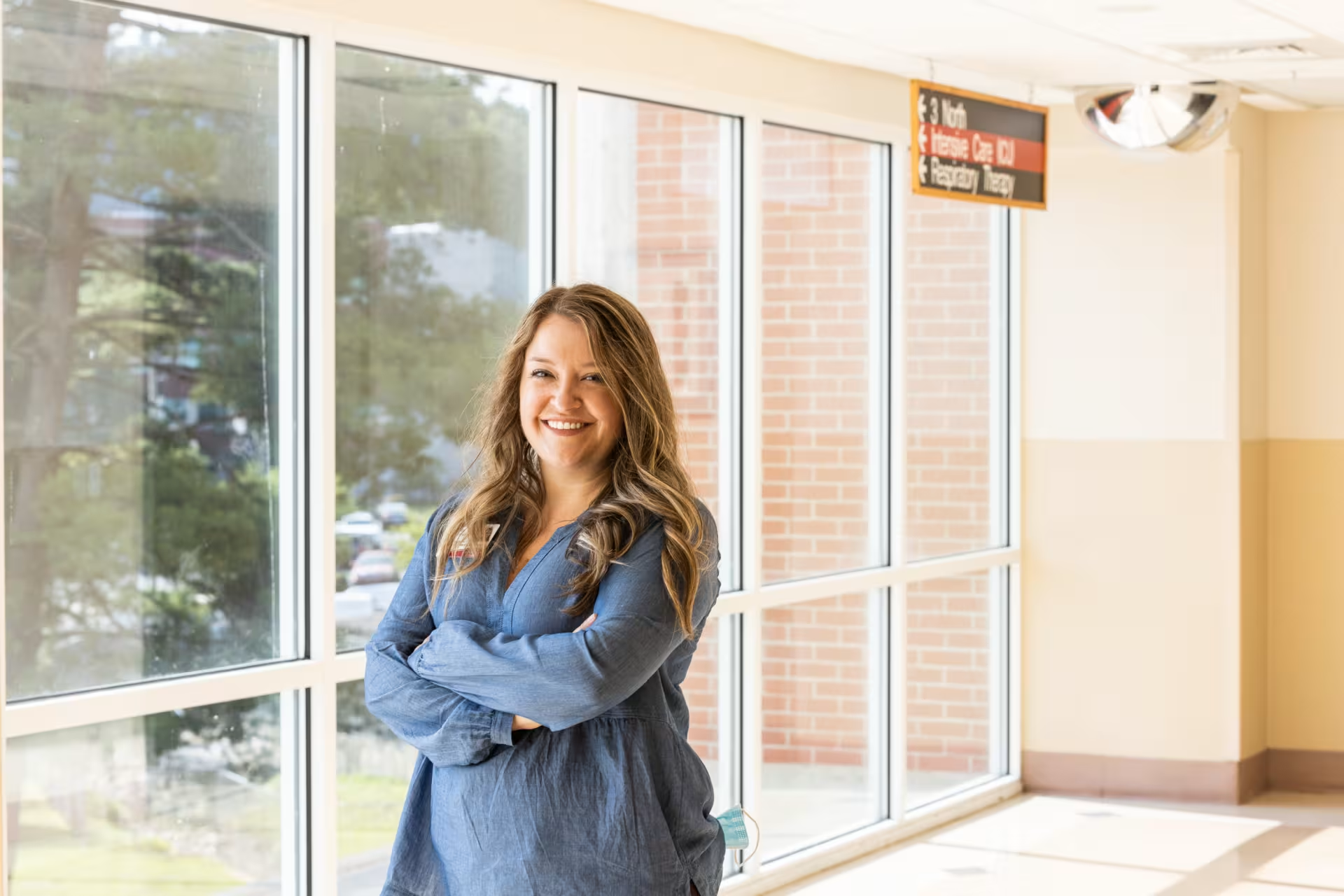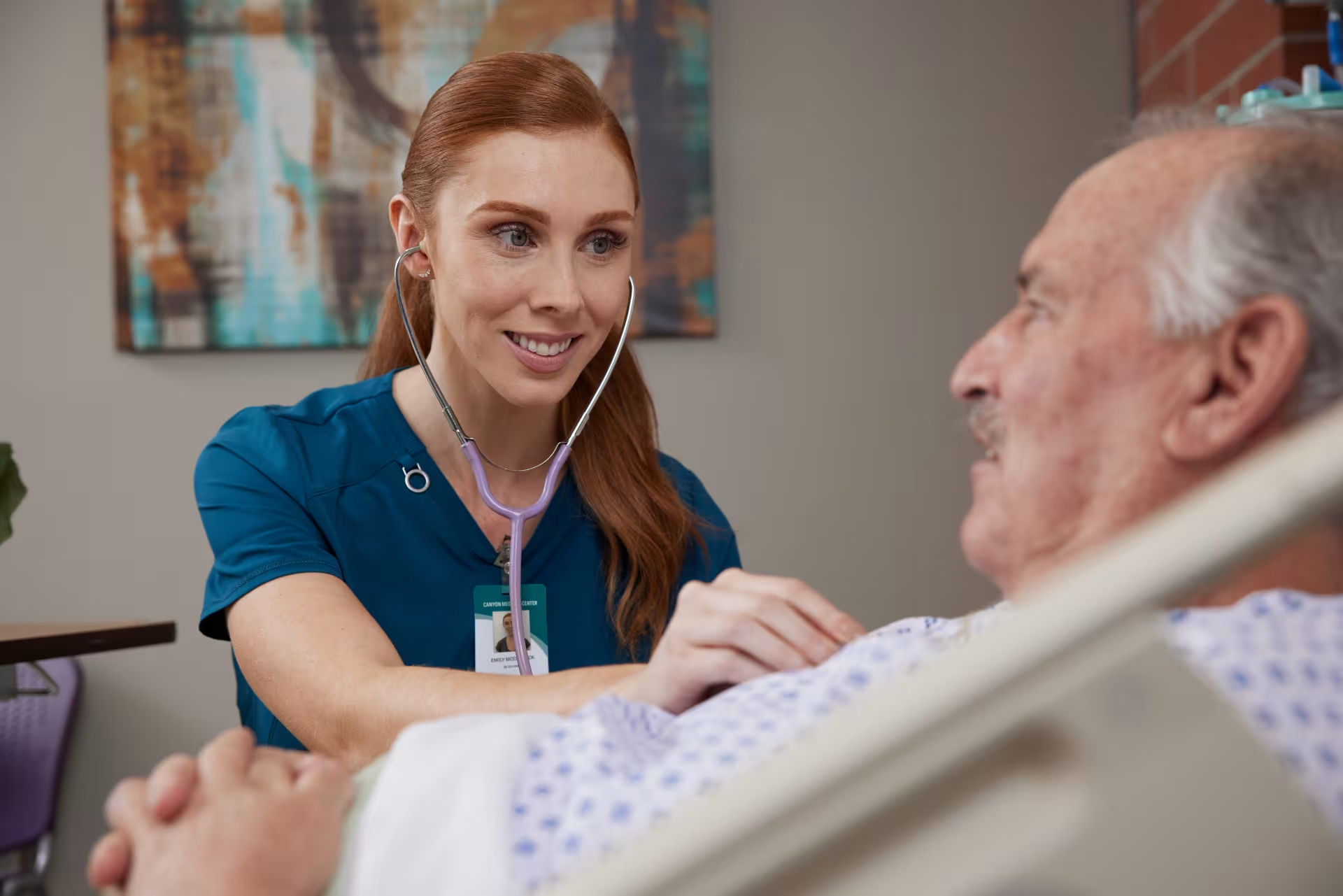
Adult-Gerontology Acute Care Nurse Practitioner (AGACNP) MSN
Assist the Elderly With an Adult-Gerontology Nurse Practitioner MSN
Grand Canyon University’s Master of Science in Nursing (MSN): Acute Care Nurse Practitioner with an Emphasis in Adult-Gerontology can enable experienced nurses to provide advanced level care in complex, acute and critical settings for adult and geriatric patients. While completing your in-depth gerontology courses, you will be taught advanced competencies in areas such as pharmacology and pathophysiology. An MSN: AGACNP program can be a steppingstone toward pursuing board certification as an adult-gerontology acute care nurse practitioner (AGACNP) — a type of advanced practice registered nurse (APRN). (See disclaimer 1,2)
In the acute care role, nurse practitioners’ scope of work includes providing assessments, diagnoses and care for adults and the geriatric population. Acute care nurse practitioners (ACNP) perform health assessments, prescribe medications and suggest quality health treatments to manage acute, subacute and complex patients, as well as those with chronic illness.

Online: $750 per credit [More Info]
Up to 12 credits or 1/3 of the total program requirements in transfer (whichever is less)
Credits: Fill out the Lopes Eval to find out what will transfer
Admission requirements may differ based on degree level, program and modality or transfer status. Some programs of study may require a higher GPA and/or other qualifying criteria for admission.
Please review full admission and program requirements in the University Policy Handbook.
Program available in Arizona, California, Colorado, Florida, Georgia, Idaho, Illinois, Nevada, New Mexico, North Carolina and Texas
Make a Difference in the Lives of Seniors With Specialized MSN: AGACNP Training
The online AGACNP is designed for experienced registered nurses who want to advance their skill sets with Master of Science in Nursing courses.(See disclaimer 3) The acute care nurse practitioner who specializes in adult-gerontology needs specialty-specific training to care for that population.
This AGACNP program at GCU can teach you the necessary nursing education to pursue certification as an adult-gerontology acute care nurse practitioner. An additional two-day, on-campus experience can help you prepare for certification as an AGACNP through individual review, planning, systems and topic reviews.
As a future adult-gerontology nurse practitioner, the following tasks can fall into your scope of practice:
Suturing
Incision
Drainage
Casting
Splinting
Intubation
Catheter insertion
Lumbar puncture
Chest tube insertion
Radiology interpretation
Ventilator management
Hemodynamic monitoring
Examine Foundational Domains in Gerontology Courses
In this program, you will be taught advanced theories and practices related to all areas of direct critical care for adult and gerontology patients. The College of Nursing and Health Care Professions at GCU strives to ensure that future acute care nurse practitioners are well-rounded in their approach to healthcare by delivering an advanced nursing education.(See disclaimer 3)
There are seven domains that provide the foundation for the adult-gerontology nurse practitioner (AGNP) coursework. These domains require you to take coursework that teaches you to make critical judgments about the symptoms and complaints of adult and geriatric patients. As an adult-gerontology acute care nurse practitioner, you must be able to work with patients and their families in a range of settings. Communication is the backbone of this profession, as it enables patient education, professional collaboration and public policy advocating.
Gain Hands-On Experience in the Nursing Field
For this MSN: AGACNP, you will be required to complete 675 hours of supervised clinical practice. You will also attend two on-campus experience programs. Over the course of three days, these on-campus programs are designed to provide opportunities for experiential learning.
This program includes the study of:
Managing the adult-gerontology patient
Complications related to gerontology
Disease detection
Diagnosis
Research
Culturally relevant practices
Career Paths for MSN: ACNP With an Adult-Gerontology Emphasis Graduates
As a graduate of this online MSN: AGACNP degree,(See disclaimer 3) you may continue in your current role or use your educational experience to position yourself for potential advancement in your career.
You may pursue work in outpatient, inpatient and hospital-based settings to manage the physical health of adult and geriatric patients involving acute and chronic conditions.
If you are an experienced nurse looking to advance your career, you can prepare to pursue AGACNP board certification with this MSN.
Other workplace settings may include:
Trauma units
Emergency care
Acute care units
Specialty clinics
Long-term care facilities
Earn Your MSN: AGACNP From an Institutionally Accredited University
The Master of Science in Nursing: ACNP: Adult-Gerontology emphasis meets the standards set forth by numerous professional agencies, including the National Organization of Nurse Practitioner Faculties (NONPF) and American Nursing Association (ANA). Nurses who wish to practice acute care in certain states may be required to meet additional standards.
GCU is institutionally accredited, which is a reflection of the quality of our university. For more information on the accreditation of nursing programs and other university approvals, please visit our University Accreditation and Regulations page.
Frequently Asked Questions
If becoming an adult-gerontology acute care nurse practitioner is a part of your nursing goals, read through some of our most frequently asked questions to learn more about this career path and earning your MSN degree.
What does AGACNP stand for?
What does “acute care” mean and how does it apply to an AGACNP?
Do I have to be a nurse to apply to become an AGACNP?
How long does it take to become an adult-gerontology acute care nurse practitioner?
Is GCU’s acute care nurse practitioner program offered online?(See disclaimer 3)
Program Curriculum
Core Courses

Pursue personal fulfillment in providing a higher quality of care to your adult-gerontology patients. Apply today to enroll in GCU’s online MSN: AGACNP program and pursue the next stage in your career as a future APRN.
- Only available in certain states.
- Bal, D. MS.Ed. (2023, Jan. 10). How To Become an APRN. Nurse Journal. Retrieved Sept. 19, 2023.
Clinical, practicum and immersion hours completed locally.
- King, W. (2013). Acute Pain, Subacute Pain, and Chronic Pain. Encyclopedia of Pain. Retrieved Sept. 19, 2023.



